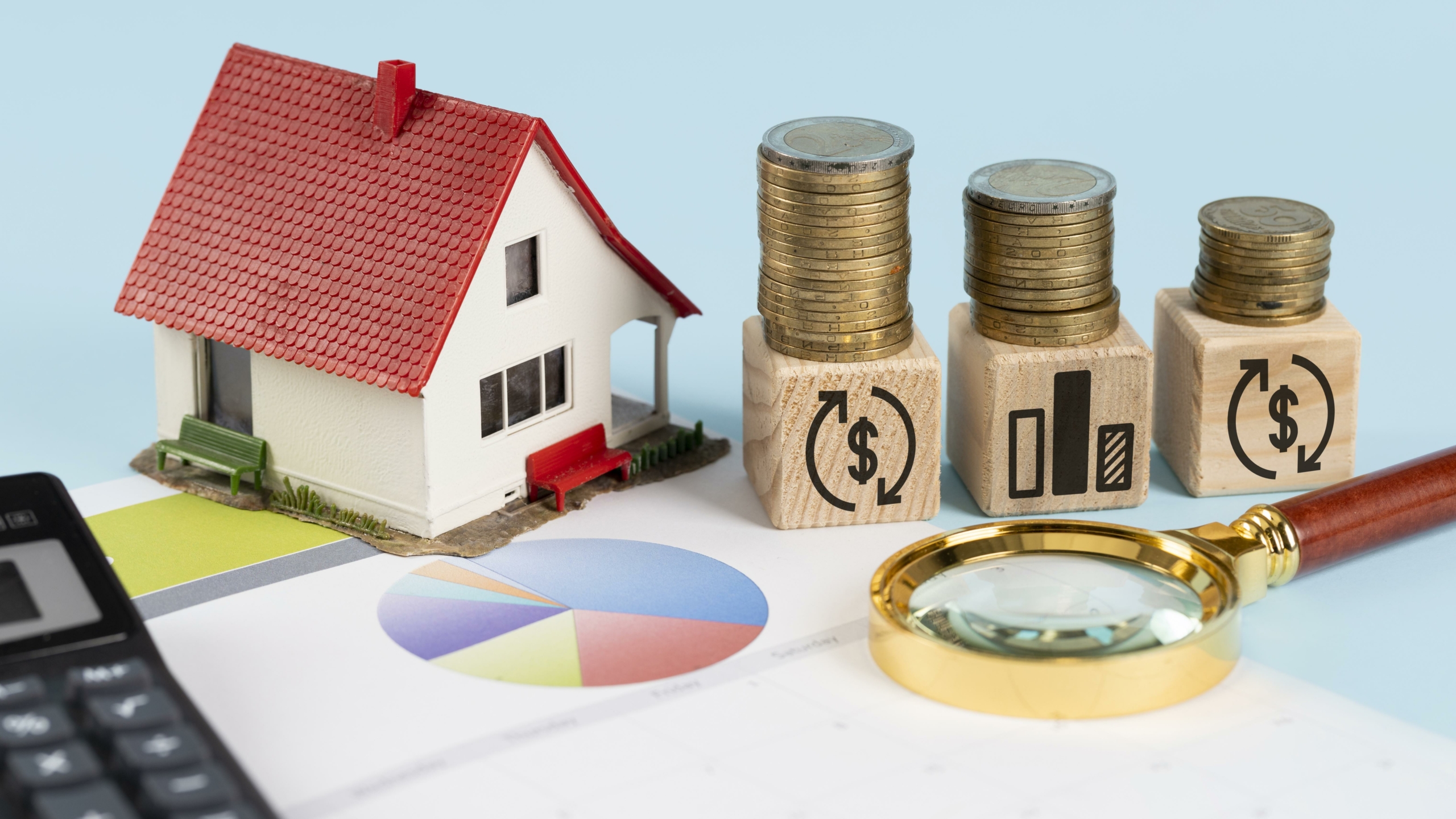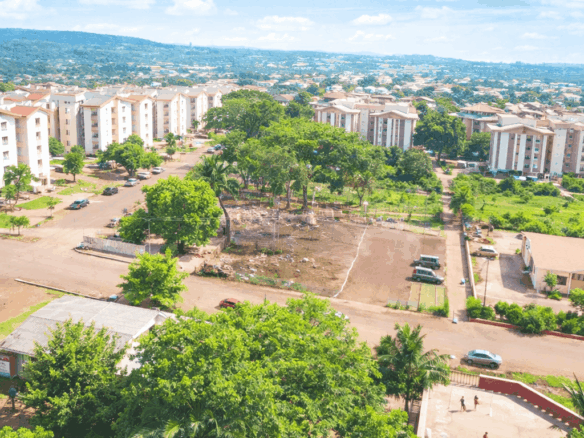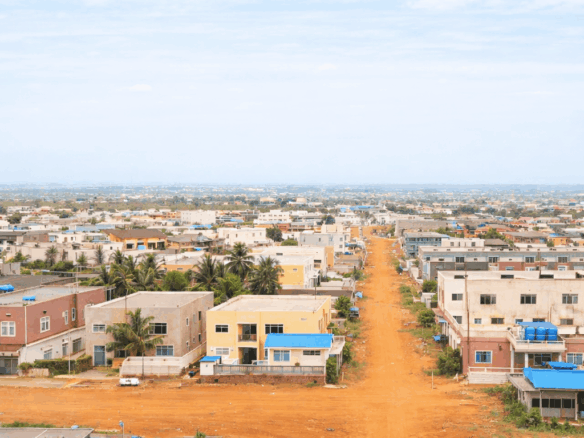As Ghana’s real estate market booms in 2025, Property VAT registration has become essential for industry professionals. Understanding these tax obligations not only ensures compliance but also offers strategic advantages for developers and commercial landlords navigating Ghana’s evolving property landscape.
Recent changes in Ghana’s taxation framework have made VAT registration and compliance more streamlined, but staying informed is essential. This comprehensive guide walks you through everything estate developers and commercial landlords need to know about VAT in Ghana’s property sector.
Understanding VAT in Ghana’s Real Estate Sector
What is VAT and How Does it Apply to Real Estate?
Value Added Tax (VAT) is a consumption tax placed on goods and services at each stage of production or distribution where value is added. In Ghana’s real estate sector, VAT applies to various transactions, including:
- Commercial property rentals
- Sale of newly constructed commercial properties
- Construction services
- Property management services
- Real estate agency services
It’s important to note that residential rentals are generally exempt from VAT, but commercial property operations typically fall within the VAT framework.
Current VAT Rates in Ghana (2025)
The Ghana Revenue Authority (GRA) has established differentiated VAT rates for real estate transactions, following Item 18 of the First Schedule to the VAT Act (Act 870):
5% VAT Rate Applies To:
- Commercial rental properties (offices, hotels, warehouses)
- Houses or apartments supplied directly by an estate developer
15% VAT Rate Applies To:
- Land sold for purposes other than agriculture or a dwelling
- Civil engineering works, landscaping, or professional services
Additionally, all transactions are subject to the 1% COVID-19 Health Recovery Levy, making the effective rates:
- 6% (5% VAT + 1% COVID-19 levy)
- 16% (15% VAT + 1% COVID-19 levy)
Understanding which rate applies to your specific business activities is crucial for proper compliance and accurate budgeting.
VAT Registration Thresholds and Requirements
When Must You Register for VAT?
Under Ghanaian tax law, registration for VAT becomes mandatory when your annual turnover meets or exceeds the threshold set by the GRA. As of 2025, the registration threshold stands at:
- GHS 200,000 in annual turnover for a 12-month period
Even if you haven’t reached this threshold, voluntary registration is possible and might be advantageous if you want to claim input VAT on your purchases and expenses.
Required Documentation for VAT Registration
To register for VAT in Ghana, estate developers and commercial landlords should prepare the following documents:
- Completed VAT registration form (VAT 1) available on the GRA portal
- Certificate of Incorporation or Business Registration Certificate
- Tax Identification Number (TIN)
- Bank account details
- Proof of business address (utility bills, tenancy agreement)
- Ghana Card of directors/owners
- Site plan or property documents for verification purposes
Step-by-Step Registration Process
- Obtain a TIN: If you don’t already have one, register for a Tax Identification Number through the GRA portal
- Complete the VAT registration form: Fill out form VAT 1 with accurate business details
- Submit your application: Applications can be submitted online through the GRA portal or physically at your local Domestic Tax Revenue Division office
- Field verification: The GRA may conduct a physical verification of your business premises
- Certificate issuance: Upon approval, you’ll receive a VAT Certificate with your unique VAT number
The registration process typically takes 5-10 working days when all documentation is properly submitted.
VAT Compliance Obligations for Property Businesses
Filing Requirements and Deadlines
Once registered for VAT, estate developers and commercial landlords must:
- File VAT returns monthly by the last working day of the month following the tax period
- Submit returns electronically through the GRA portal
- Maintain proper books of accounts and VAT records for at least six years
- Issue VAT invoices for all taxable supplies
Missing filing deadlines can result in penalties starting at GHS 500, with additional interest accruing on unpaid tax amounts.
VAT Invoicing Requirements
A valid VAT invoice must contain:
- Your business name, address, and VAT registration number
- Invoice date and unique sequential number
- Customer’s name and address (and TIN if registered)
- Description of services or property supplied
- The value of the supply, tax rate applied, and tax amount
- Total amount payable
For commercial landlords, it’s essential to clearly state the rental period covered by each invoice.
Record-Keeping Responsibilities
Maintaining comprehensive records is crucial for VAT compliance. Your record-keeping system should include:
- Copies of all VAT invoices issued and received
- Import and export documentation
- General accounting records
- Property transaction details
- Bank statements and payment records
Digital record-keeping systems have become increasingly popular among real estate professionals in Ghana, with several software solutions specifically tailored to meet local VAT compliance requirements.
Special Considerations for Estate Developers and Commercial Landlords
VAT on Commercial Property Development
Estate developers should be aware of several important VAT considerations:
- Houses or apartments supplied directly by an estate developer are subject to 5% VAT plus 1% COVID-19 levy
- Input VAT on construction materials and services can generally be reclaimed
- The first sale of commercial buildings is typically VAT-taxable
- Long-term projects may qualify for special VAT accounting schemes
- Mixed-use developments require careful apportionment of VAT between commercial (taxable) and residential (exempt) elements
Example: Selling a Newly Developed Property
- Property Price (No Tax Yet): GHS 100,000
- VAT (5%): GHS 5,000
- COVID-19 Levy (1%): GHS 1,000
- Total Price: GHS 106,000
As the developer, you are responsible for collecting and remitting this VAT to the GRA, though the cost is typically passed on to the buyer.
Commercial Rental Properties and VAT
For commercial landlords, the following points are particularly relevant:
- Commercial rental income (offices, hotels, warehouses) is subject to 5% VAT plus 1% COVID-19 levy
- Service charges collected from tenants are typically VAT-taxable
- Tenant improvements may have VAT implications for both parties
- Security deposits are generally outside the scope of VAT until applied against taxable supplies
Example: Renting an Office Space
- Monthly Rent (No Tax Yet): GHS 5,000
- VAT (5%): GHS 250
- COVID-19 Levy (1%): GHS 50
- Total Monthly Rent: GHS 5,300
It’s important to clarify with tenants whether your quoted price includes or excludes VAT and the COVID-19 levy.
Common Pitfalls and How to Avoid Them
Estate developers and commercial landlords frequently encounter these VAT compliance challenges:
- Misclassification of supplies: Ensure you correctly distinguish between standard-rated, zero-rated, and exempt supplies
- Late registration: Monitor your turnover closely to avoid penalties for late registration
- Improper invoicing: Use VAT-compliant invoicing for all transactions
- Poor record-keeping: Implement robust systems to track all property-related transactions
- Missed input VAT claims: Regularly review expenses to ensure all eligible input VAT is claimed
Strategic VAT Planning for Real Estate Businesses
Optimising VAT Positions
With proper planning, estate developers and commercial landlords can optimize their VAT position:
- Consider the timing of major purchases to maximize input VAT recovery
- Explore VAT grouping opportunities if you operate multiple related businesses
- Structure commercial leases with VAT efficiency in mind
- Review the VAT treatment of common area maintenance and service charges
- Consider the VAT implications during property acquisition and disposal planning
Working with Tax Professionals
Given the complexity of VAT in real estate, working with qualified tax professionals is highly recommended. A tax advisor with specific experience in Ghana’s property sector can:
- Ensure compliance with changing regulations
- Identify VAT-saving opportunities
- Represent you during GRA audits
- Provide guidance on complex transactions
- Help with VAT dispute resolution
Practical Considerations for VAT Implementation
Who Actually Pays the VAT?
While the law holds the seller or developer responsible for collecting and remitting VAT to the GRA, whether that cost is passed on to buyers or tenants depends on how property deals are structured:
- VAT Added on Top The developer quotes a base price and then adds VAT and COVID-19 levy as separate line items. This increases transparency but means the buyer pays more out-of-pocket at closing.
- VAT Included in the Listed Price Some developers “build in” the VAT and COVID-19 levy to their listed price, showing only one figure covering everything. This can be simpler but might cause confusion if clients expect to see VAT detailed separately.
Always clarify by asking: “Does this price include VAT?” This question can prevent budget surprises—especially when arranging financing.
Diaspora Buyers and International Investors
If you or your clients live outside Ghana—whether Ghanaians in the diaspora or foreign nationals—the same VAT rules apply. There are no special exemptions for overseas buyers. The 5% or 15% rates (plus the 1% COVID-19 levy) apply to all qualifying purchases regardless of the buyer’s residency status.
Conclusion
VAT registration and compliance are essential aspects of running a successful real estate business in Ghana. By understanding the differentiated rates (5% vs. 15%), registration requirements, compliance obligations, and strategic considerations outlined in this guide, estate developers and commercial landlords can navigate Ghana’s VAT system with confidence.
As Ghana’s property market continues to evolve in 2025, staying informed about VAT requirements is not just about avoiding penalties—it’s about making tax-efficient business decisions that contribute to long-term profitability and growth.
For personalized assistance with finding VAT-compliant commercial properties or development opportunities, visit Ghana Property Finder to explore our extensive listings and connect with tax-savvy property professionals.
Frequently Asked Questions
1. Is VAT applicable to all types of property transactions in Ghana?
No, residential property rentals are generally VAT-exempt, while commercial property rentals and sales of newly constructed commercial buildings are typically subject to VAT.
2. Can I reclaim VAT on property maintenance expenses?
Yes, if you are VAT-registered and the property is used for making taxable supplies, you can generally reclaim input VAT on maintenance expenses.
3. How do I handle VAT for mixed-use developments with both commercial and residential elements?
You’ll need to apportion input VAT between the taxable commercial elements and exempt residential elements, typically based on floor area or expected revenue.
4. What are the penalties for non-compliance with VAT regulations in Ghana?
Penalties include fines starting at GHS 500 for late filing, interest on unpaid taxes (currently at 125% of the Bank of Ghana discount rate), and potential criminal prosecution for serious offences.
5. Can I voluntarily register for VAT even if my turnover is below the threshold?
Yes, voluntary registration is possible and might be beneficial if you have significant input VAT to recover or if your clients prefer to work with VAT-registered businesses.






